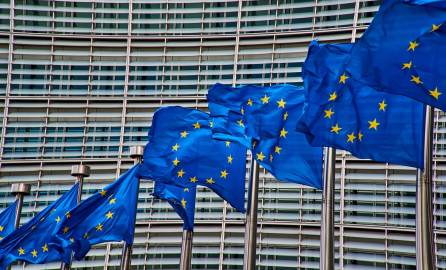Participants at a high-level panel discussion entitled, “Women Entrepreneurship to Reshape the Economy through Innovation in the Middle East and Northern Africa (MENA)” held during the 2012 European Development Days explored ways to increase women’s participation in the economy.
In a region where women comprise only 26 per cent of the labour force, compared to 39 percent rate in Low and Middle Income countries, panellists from the EU and partner countries stressed the need for changes both in the regulatory environment and in societal attitudes.
EuropeAid’s newly appointed Deputy Director General, Marcus Cornaro, said that development policies should strengthen women’s access to both capital and training. He also added that a strong visual display of women’s achievements would support local communities to break traditional and cultural barriers.
Speaking to capacity4dev.eu after the panel he said, “We have firstly to work with governments to improve the regulatory environment, and secondly help at local community development level so that women are encouraged to seize new opportunities.” This involves enabling civil society organisations in terms of analysis and advocacy throughout the Arab world, in hand with Arab NGOs, he added.
“Another aspect that we learned from the discussion is that we have to look increasingly also at Islamic products on the way to, say, dealing with microfinance,” said Mr Cornaro.
Supporting women entrepreneurs through providing role models, inspiration and mentorships is part of co-panellist Tara Dawood’s daily agenda. Her organization is the Pakistan-based Dawood Global Foundation and Ladies Fund, which has promoted change in societal perceptions towards women in business for the past decade, and learned important lessons in the process.
“The key is that we began with the traditional bottom-to-top approach that most developmental agencies use, but found that no matter how successful we were, the entrepreneurship was contained in that level of society – it could never penetrate to more than one economic tier. So we decided to flip the model and begin with a very unusual top-to-bottom approach,” she said to capacity4dev.eu.
In 2008, Dawood launched a prestigious ‘Oscars style’ event recognizing women’s achievements in business in Pakistan, which was seen to have an immediate impact on societal attitudes. The Ladies Fund Awards created female icons, and women who had previously downplayed their working roles were encouraged by the men in their lives to work towards these sought-after awards. In addition, the awards allowed reach across the classes.
Working with around 140 organisations, today Dawood Global Foundation reaches out to over 12,000 women and youth with training and mentors, while recognizing the role that new technology can play to support home-based entrepreneurship. Tara Dawood’s asset management company also has a Sharia division to facilitate women’s savings.
Has she encountered religious criticism for assisting women in business? “So far, everyone has been supportive because the wife of the Prophet, Khadīja bint Khuwaylid, was his boss and an entrepreneur,” said Ms Dawood. ”She was a rich woman who helped fund the early days of Islam, so many women cite her as an example. We remind each other that it is a religious birthright: the right to entrepreneurship and education for women.”
The World Bank sees Gender Equality as ‘Smart Economics’, where investing in women is not only the right thing to do, but the smart thing to do. Empowering women is not only good for women - it is good for peace, human security, and the well-being of current and future generations, as women share more of their income with families and the community at large.
Yet figures quoted by the panel moderator, John Handra of UN Women, show that globally, women earn only 1% of world wealth, with a 10% share of global income, and they hold only 14% of leadership positions in the private and public sectors. In MENA, women form the lowest percentage of the workforce in the world.
The EC is involved in a number of projects that assist entrepreneurs, for example by improving business registration and the tax regime in Tunisia. Women-biased projects that involve access to credit are also being funded in Tunisia, Morocco, Egypt, and Jordan, alongside regional partners and financing institutions. During the Development Days, the EC signed an agreement with UN Women for a project that aims to promote the access and effective participation of marginalised women in economic and public life.
According to Mr Cornaro, learning from good practice, developing more effective policies and finding ways to include women in economic development will lead to the systemic change needed for more women in MENA to be employed.
“It is all unfinished business,” he said. “The key sentence of today is not to see this just as a gender issue but as smart economics… very much for the broader issue of economic revival and job creation in the Mediterranean, which, apart from democratic change, is the key litmus test we will face in years to come if the changes in the area are to be successful and sustainable.”
This collaborative piece was drafted with input from Marina Marchetti, Marcus Cornaro, Vérane Pravda-Starov and Alberto Coretzon Gomez with support from the capacity4dev.eu Coordination Team.

Log in with your EU Login account to post or comment on the platform.